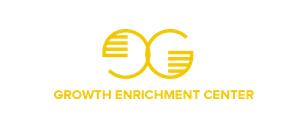
Harness your full potential by mastering empowerment with 7 essential practices. Begin by quieting your inner critic and embracing a positive self-image. Establish clear goals aligned with your aspirations and incorporate effective communication skills to nurture deep connections. Assign tasks based on strengths to maximize productivity and create an empowering culture within your team. Utilize support networks and external mentorship for valuable guidance. These practices act as a roadmap to personal and professional growth, guiding you towards a path of empowerment and success. Delve deeper into these practices to reveal your true potential.
Silencing the Inner Critic
Silencing your inner critic is a transformative journey towards embracing your full potential and achieving personal empowerment. Within this journey, it's important to recognize the impact of negative self-talk patterns on your confidence and decision-making abilities.
As a team member, empowering leadership involves understanding how these self-doubt patterns can hinder not only your own progress but also the collective success of the team.
By identifying triggers that activate your inner critic, such as challenging situations or feedback, you can begin to distinguish between constructive criticism that aids improvement and destructive self-talk that undermines your growth. This self-awareness is key to developing strategies to overcome the inner critic.
Cultivating a positive self-image and celebrating your achievements are powerful tools in silencing that critical voice within you.
Building Self-Confidence
Embrace the power of positive affirmations and the art of setting achievable goals to nurture your self-confidence.
Celebrate each small victory along the way, for they're stepping stones to a stronger sense of self-assurance.
Positive Self-Talk Techniques
To cultivate a strong sense of self-confidence, practice replacing negative thoughts with empowering affirmations through positive self-talk techniques. Positive self-talk is a powerful tool that can transform your mindset and boost your self-esteem. Here are three essential techniques to help you build self-confidence:
- Affirmations: Start your day by affirming positive statements about yourself. Repeat phrases like 'I am capable,' 'I believe in myself,' and 'I am worthy' to reinforce positive beliefs.
- Challenging Negative Thoughts: When negative thoughts creep in, challenge them with positive counterarguments. Reframe self-limiting beliefs into empowering statements to shift your perspective.
- Self-Encouragement: Be your biggest cheerleader. Offer yourself words of encouragement and support in times of doubt. Celebrate your successes and acknowledge your strengths to boost your self-confidence.
Setting Achievable Goals
Setting achievable goals is the cornerstone of building self-confidence and fostering motivation in your personal and professional endeavors. When you set clear, specific goals, you provide yourself with direction and a sense of accomplishment as you progress. These achievable goals act as milestones, helping you track your advancement and stay focused on your objectives.
Effective Goal-Setting

Begin by crafting clear, specific, and measurable objectives when engaging in effective goal-setting practices. Setting goals that are challenging yet attainable can motivate you to push your limits and aim for continuous improvement.
Align your personal or team goals with the broader objectives of your organization to create a sense of unity and purpose. Remember to regularly review your goals, adjusting them as necessary based on your progress and feedback received. By incorporating the SMART criteria – ensuring your goals are Specific, Measurable, Achievable, Relevant, and Time-bound – you promote clarity and hold yourself accountable.
Effective goal-setting isn't just about envisioning your desired outcome but also about breaking it down into actionable steps that propel you towards success. Embrace the process of setting goals as a way to focus your efforts, stay motivated, and ultimately achieve your aspirations.
Enhancing Communication Skills
Improving your communication skills is like opening a door to deeper connections and understanding.
By actively listening and using clear, direct messaging, you create a space where empowerment flourishes.
Active Listening Techniques
Engage deeply with others by mastering active listening techniques to amplify your communication prowess and foster meaningful connections. Active listening involves more than just hearing; it demands your full attention and understanding.
Here are three essential techniques to enhance your active listening skills:
- Paraphrasing: Reflect back what the speaker said in your own words to demonstrate comprehension.
- Summarizing: Condense the main points of the conversation to guarantee alignment.
- Clarifying Questions: Ask open-ended questions to explore further into the speaker's thoughts and feelings.
Clear and Direct Messaging
Mastering the art of clear and direct messaging empowers you to convey ideas effectively, fostering understanding and promoting seamless communication within teams. By expressing thoughts in a straightforward and unambiguous manner, you guarantee that your message is received accurately.
Enhancing your communication skills through clear messaging not only helps in avoiding misunderstandings but also encourages effective information exchange. Using concise language, steering clear of jargon, and making sure that your message is easily comprehensible to the recipient are key aspects of clear and direct messaging.
This practice is vital for accurately conveying expectations, instructions, and feedback within a team setting. Ultimately, mastering clear and direct messaging fosters transparency, builds trust, and cultivates a culture of open communication within teams.
Delegating Based on Strengths

Leverage your team members' unique strengths by assigning tasks that align with their expertise and abilities to enhance productivity and job satisfaction. Understanding and utilizing individual strengths in delegation can lead to remarkable outcomes. Here are three key reasons why delegating based on strengths is essential:
- Optimized Productivity: When tasks are matched to team members' strengths, they can perform at their best, leading to increased efficiency and output. This tailored approach guarantees that each task is handled by someone with the right skill set, minimizing errors and delays.
- Enhanced Job Satisfaction: Assigning tasks based on strengths gives team members a sense of purpose and fulfillment. They're more likely to feel valued and motivated when their capabilities are recognized and utilized effectively. This, in turn, boosts morale and job satisfaction within the team.
- Promotes Growth and Development: Delegating based on strengths empowers team members to further develop their expertise. By working on tasks that align with their strengths, individuals can hone their skills, gain confidence, and excel in their roles, fostering personal and professional growth.
Fostering an Empowering Culture
To cultivate a culture of empowerment within your team, prioritize fostering an environment where trust and value are fundamental principles. When team members feel trusted and valued, they're more likely to share ideas openly, communicate effectively, and engage in collaborative efforts. An empowering culture not only boosts motivation but also sparks innovation and enhances overall team performance.
Encourage your team to voice their thoughts and opinions without fear of judgment. Create a safe space where everyone's input is welcomed and respected. Effective delegation plays an important role in empowering team members by giving them the autonomy to make decisions and take ownership of their work. Support systems are essential to provide guidance and assistance when needed, fostering a sense of security and encouragement.
Leveraging Support Networks

By creating significant connections and nurturing relationships within your professional network, you can access a wealth of guidance, insights, and opportunities for personal and career development. Leveraging your support networks can be a game-changer in your journey towards empowerment. Here's how:
- Mentorship: Cultivating relationships with mentors can provide valuable guidance and insights for personal and professional growth. Their wisdom and experience can offer you a roadmap to navigate challenges and seize opportunities.
- Peer Support: Seeking advice from peers within your industry can offer diverse perspectives and solutions to challenges. Engaging with colleagues who understand your field can spark creativity, innovation, and collaborative problem-solving.
- Networking: Networking within and outside your organization can lead to new opportunities, collaborations, and knowledge sharing. Joining professional groups and associations can facilitate connections with like-minded individuals and access to industry resources.
Frequently Asked Questions
How Can I Deal With Imposter Syndrome When Trying to Silence My Inner Critic?
When tackling imposter syndrome and quieting your inner critic, remember that you're not alone in feeling this way. Embrace the fact that many successful individuals have faced similar doubts.
Focus on your strengths and accomplishments to counteract negative thoughts. Seek support from friends, mentors, or a therapist.
Practice self-compassion and remind yourself that you're capable and deserving. Stay resilient and believe in your abilities to overcome imposter syndrome.
What Are Some Practical Strategies for Building Self-Confidence in High-Pressure Situations?
In high-pressure moments, focus on your strengths and past successes. Take deep breaths to calm your nerves and visualize a positive outcome. Remind yourself that you're capable and prepared for the challenge ahead.
Practice positive self-talk and affirmations to boost your confidence. Embrace the opportunity to grow and learn from the experience. Trust in yourself and your abilities to shine under pressure.
You've got this!
How Can I Ensure That My Goals Are Both Challenging and Achievable When Setting Effective Goals?
To guarantee your goals are both challenging and achievable, start by envisioning your desired outcome clearly. Break down your goal into smaller, manageable steps that push you out of your comfort zone but are still within reach. Set deadlines to keep yourself accountable and motivated.
Stay flexible and adjust your goals as needed while staying focused on your ultimate vision. Embrace the journey, celebrate progress, and learn from setbacks to keep moving forward.
What Are Some Techniques for Improving Active Listening and Empathy in Order to Enhance Communication Skills?
To enhance your communication skills, focus on improving active listening and empathy. Practice giving your full attention to others, truly hearing their words and understanding their emotions.
Empathy allows you to connect on a deeper level, showing that you care and value their perspective. By honing these skills, you create a strong foundation for meaningful and authentic interactions, fostering better relationships and mutual understanding.
How Can I Effectively Delegate Tasks to Team Members Based on Their Strengths Without Micromanaging or Undermining Their Abilities?
Imagine yourself as a conductor leading a symphony orchestra. Just like you wouldn't play every instrument yourself, trust your team members to shine in their areas of expertise.
Delegate tasks based on their strengths, providing clear expectations and support. Step back and let them showcase their talents, offering guidance when needed.
Empower them to take ownership of their work, fostering a sense of accomplishment and growth within the team.
Conclusion
You've learned the essential practices to master empowerment, but did you know that 70% of employees feel disengaged at work?
By implementing these practices, you can create a culture of empowerment that inspires, motivates, and brings out the best in others.
Remember, empowerment isn't just a buzzword – it's a powerful tool that can transform individuals and organizations.
Embrace these practices and observe as you unleash your full potential.

